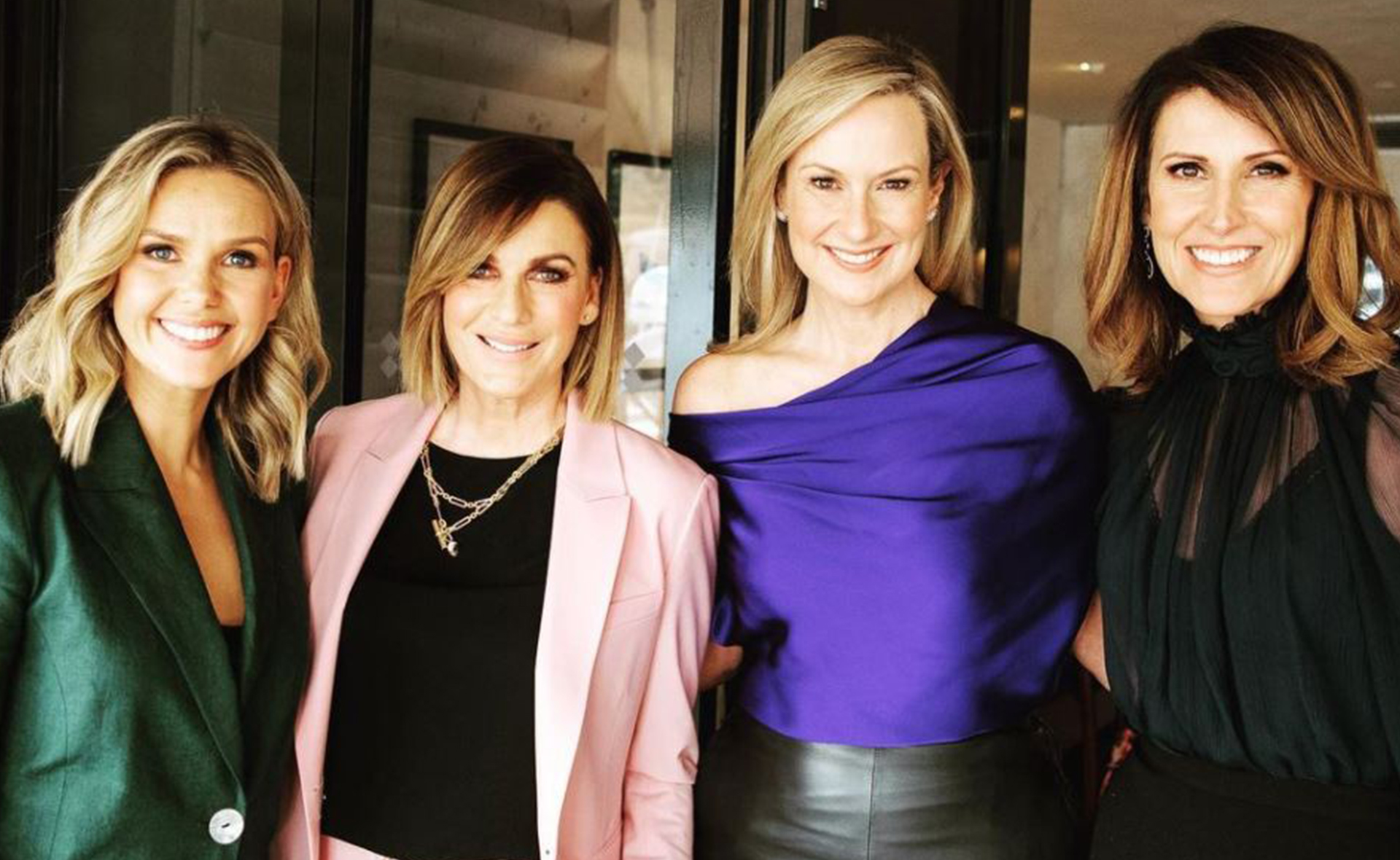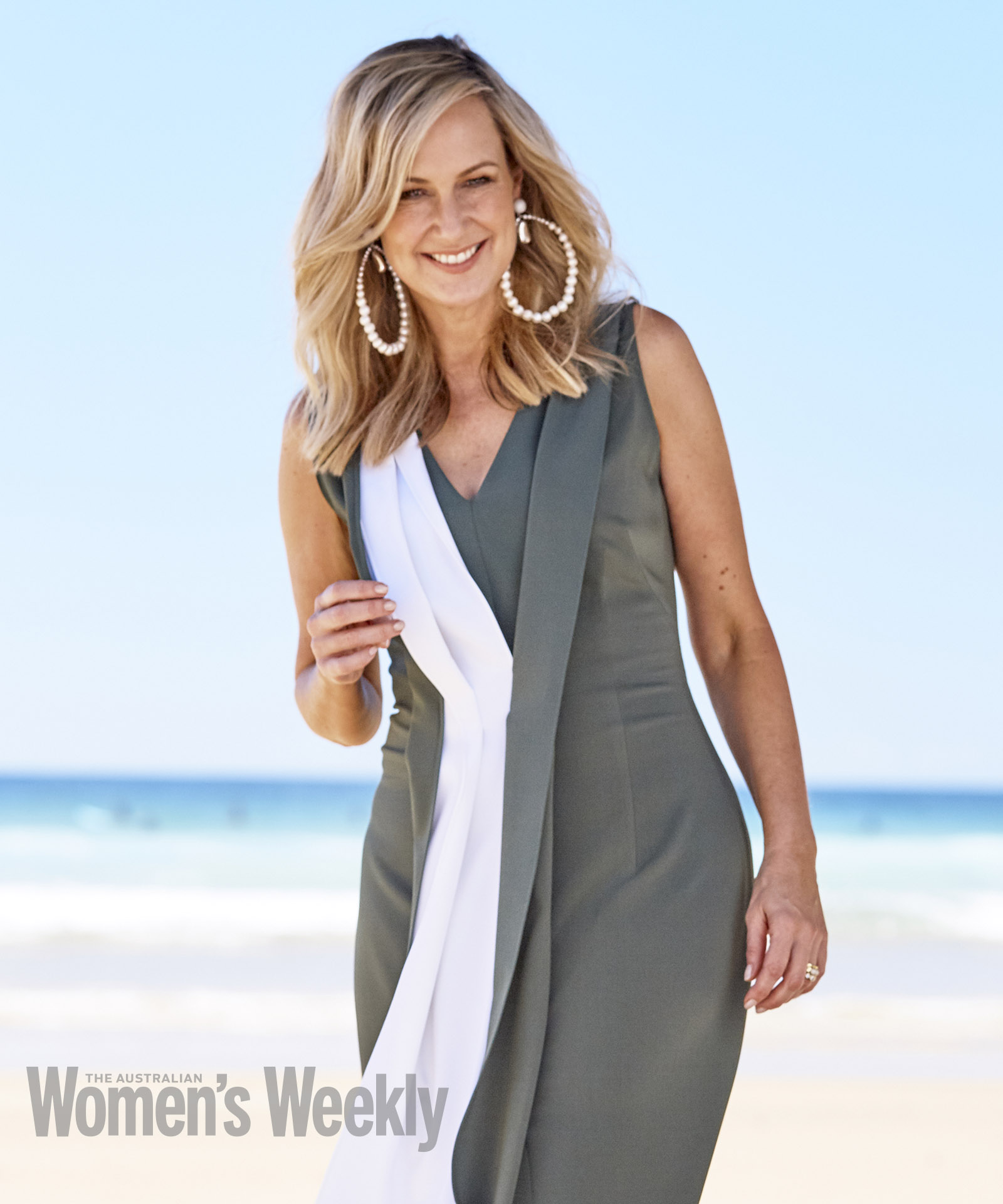I’ll admit to feeling a bit emotional as I watched my 17-year-old daughter Talia take part in her year 12 graduation ceremony earlier this month.
The day was full of love and reflection, but instead of packing into the school hall with her peers and other proud parents, Talia’s rite of passage was from our couch – on a screen.
A Zoom graduation wasn’t the finale to 13 years of schooling that she – or we – had imagined.
But if COVID has taught us anything, it’s that our kids are incredibly resilient and deserve a round of applause. Even if that applause had to come in the form of clapping and champagne emojis that day.
Year 12 is already tough, but year 12 at home, without the support of her peers and the face to face contact with teachers, is challenging and isolating.

Melissa and her daughter Talia.
(Supplied)I’m sure most parents have found it difficult to navigate, as we walk that fine line between a gentle push and too much pressure in an already pressurised environment.
Let alone attempting to help them with year 12 subjects! But I have watched in awe as our kids have adapted and got on with it.
It has filled me with hope and gratitude.
We’ve been able to survive in lockdown and set up for schools in our homes because we have enough water, food and power to sustain us.
As I reflect on the education and support Talia has received in Australia, I’ve also been thinking about a young boy called Eliyas who I met in Ethiopia precisely a decade ago. For his community, like so many others, the impact of COVID-19 has been so much worse.
Eliyas was 15 when we met. He had been a part of my family for years, as our sponsor child with World Vision.
We had exchanged letters and I had watched him grow up through the photos we shared across the globe.
We first met on a secluded mountaintop surrounded by the other members of his village, who sang and danced in celebration.
He had dressed in his cleanest clothes and gave me a bunch of fresh flowers and the shy hug of a teenage boy.
But it was meeting Eliyas’ mum that affected me the most. Sista embraced me with such warmth and looked into my eyes with gratitude and kindness.
From one mother to another in that moment I knew what she was saying. It didn’t matter that we didn’t share a language. I have never felt so deeply rewarded – and humbled.
“But it was meeting Eliyas’ mum that affected me the most. Sista embraced me with such warmth and looked into my eyes with gratitude and kindness.” Melissa reflecting on her trip to Ethiopia.
(Supplied)I was welcomed into their home and treated as a guest of honour. We ate seeds, a porridge made of barley and milk and drank fresh, strong coffee.
Ten years on and the world has clearly and irreversibly changed.
I think of Eliyas, Sista and their community and wonder how they are coping.
We know from media reports how hard Africa and countries like it have been ravaged by the pandemic. Schools are closed, livelihoods are decimated, and children are going hungry.
Conflict and climate change were already taking their toll on these countries and communities, but COVID has made an already unimaginable situation even worse and fuelled a global hunger crisis.
Around 41 million people are right now on the brink of famine.
The United Nations recently estimated 235 million people worldwide would need lifesaving assistance and protection in 2021 – an increase of 40 per cent in just one year.
Australians have increased their support of not only local charities but worldwide organisations like World Vision.
(Supplied)Figures like that can be overwhelming and exhausting. And let’s be honest, we are already exhausted! But there is hope.
I recently learnt that despite everything that COVID has thrown at us, Australians are stepping up and have, in fact, increased their support not only of local charities, but organisations working around the world, like World Vision.
A recent study by World Vision found that despite a harsh, grinding lockdown, my NSW neighbours have proven to be some of the most generous people in the country.
There has been a 110 per cent increase in locals signing up to become child sponsors compared with the same period last year.
This means more children – just like the shy teenager I met in Ethiopia 10 years ago – are receiving the vital support they need to get through this crisis.
This is cause for hope and is the kind of news we need to hear!
Despite some of the world’s longest lockdowns, Aussies are digging deep and looking out for those less fortunate, so that when we finally get back on our feet, our global community and the next generation of children can get back on theirs too.
“Despite some of the world’s longest lockdowns, Aussies are digging deep and looking out for those less fortunate.”
(Supplied)COVID does not discriminate. It is creating challenges across the world, but Australians are stepping up and helping those in need.
From this we can rightly take some hope and optimism amid what has been among the toughest periods in our history.
After all, we are all in this together, and like the challenges of home schooling, lockdown and disrupted livelihoods, we will only get through this, if we get through it together.
Melissa Doyle AM is a World Vision Goodwill Ambassador. To find out more about how World Vision is fighting the global hunger crisis or to sponsor a child like Elyas please visit the World Vision website here.

